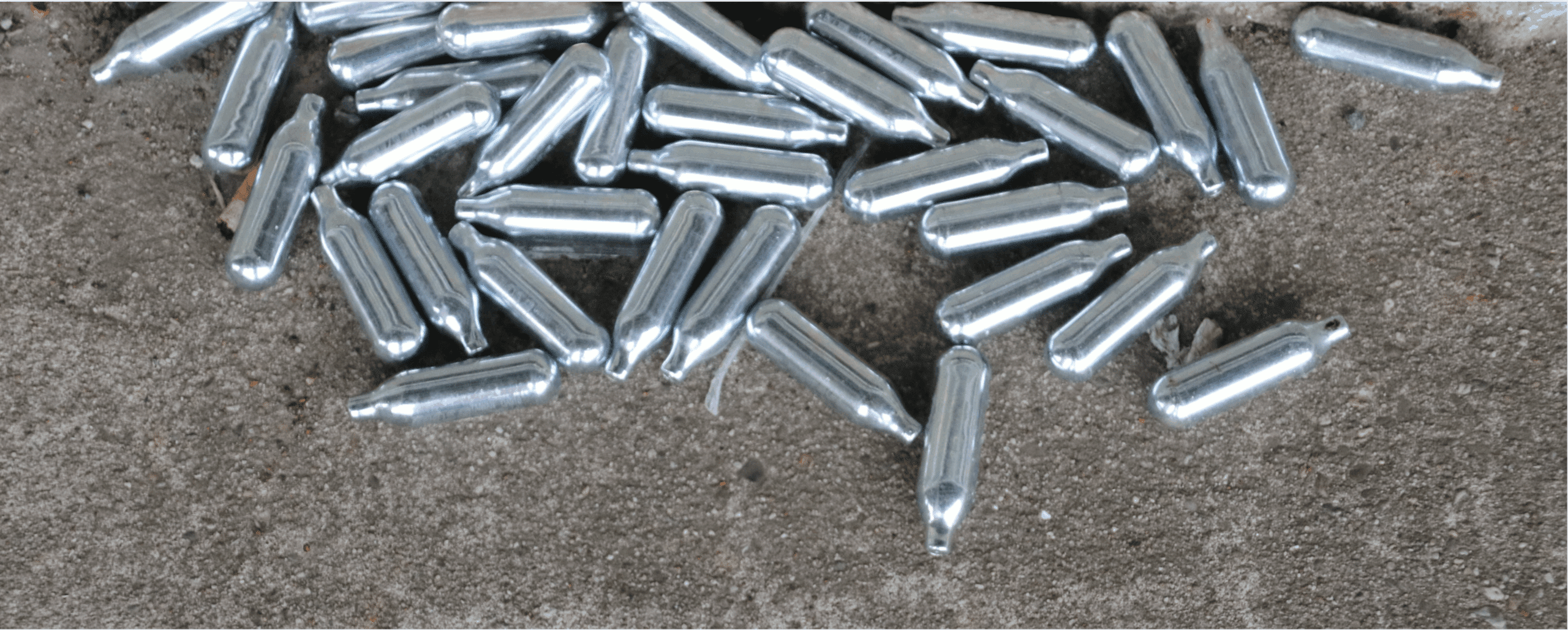If you’re reading this, you may know what it’s like to be a high-functioning addict. Maybe you’re not ready to call yourself an addict, but you can certainly relate to being in denial about how your drinking or drug use affects your life. You might be able to hold down a job and take care of your responsibilities, but that doesn’t mean your addiction isn’t taking a toll. In fact, many experts believe high-functioning addicts are actually at greater risk for relapse than those who are less able to keep up appearances. If that sounds like you, it could be time to take a hard look at your life and decide if this is the way you want to live it. Recovery is fulfilling, transformative, and better than you can imagine.
What Is a High-Functioning Addict?
A high-functioning addict is someone who seems to be able to function normally—sometimes even at a higher-than-average level—while continuing an active addiction. Not all addicts are what Hollywood likes to portray, as down on their luck, having lost their jobs, families, and houses. Many addicts work hard every day, make their car and mortgage payments, have social circles, pick up their kids from school, and appear just as put together as their peers. These people are known as high-functioning addicts. The term “functioning addict” has been around for decades. It began with alcoholics who could hold down jobs and perform the basic tasks and necessities of life for an extended period while hiding their alcoholism. Now the term is used to describe all kinds of substance abusers.
10 Signs You’re a High-Functioning Addict
Are you a high-functioning addict? You might not think so, but there are certain signs that could indicate you are. Even if you don’t consider yourself to have a problem, it’s important to be aware of the indications that addiction is present in your life. By recognizing the signs, you can take steps to get help if needed.

Here are some of the key characteristics of high-functioning addiction:
1. You frequently drink or use drugs to excess but still manage to hold down a job and/or attend school.
2. You’re able to hide your addiction from most people in your life.
3. You often make excuses for your drug or alcohol use.
4. You continue to use drugs or alcohol even though you know it’s causing problems in your life.
5. You’ve tried to quit using drugs or alcohol in the past but haven’t been able to stick with it.
6. You find yourself constantly thinking about drugs or alcohol, even when you’re not using them.
7. You spend a lot of time trying to get your hands on drugs or alcohol, even if it means putting yourself in risky situations.
8. You’ve had negative consequences because of your addiction, such as poor job performance, financial problems, legal issues, etc., but you continue using anyway.
9. You continue to use drugs and alcohol even though it’s affecting your health or your doctor has told you to stop.
10. You think you may have a problem with drugs or alcohol.
The thing about addiction is that it doesn’t get better on its own. You can only stay on top of your drug and alcohol abuse for so long before it starts causing real problems in your life.
Is Your Loved One a High-Functioning Addict?
Most addicts truly cannot maintain their addiction and their normal life. That is not the case for a high-functioning addict. This type of addict has found a way to live a life that looks perfectly normal to the outside world but also maintains an addiction. Many high-functioning addicts manage to maintain some control over their substance abuse. They are intelligent, educated, and relatively successful in their careers. Some high-functioning addicts may be executives who have no supervision at work, or they may work from home or travel often. This provides time and privacy to manage their addiction.
High-functioning addicts may be abusing any substance. A substance of abuse may include:
- Alcohol
- Heroin
- Prescription painkillers
- Cocaine
- Amphetamines
- Methamphetamine
- Tranquilizers/sedatives
Signs that your loved one may be a high-functioning addict include:
- The person can hold down a job and appear to have a normal life while secretly engaging in addictive behavior.
- You find hidden drug paraphernalia or alcohol in their belongings.
- They become defensive or secretive when questioned about their substance abuse.
- They make excuses for their behavior or try to blame others.
- Their alcohol or drug abuse causes them to miss work, school, or important engagements.
- Their addiction leads to financial instability or legal troubles, but not enough that they question their substance use.
- They have trouble maintaining healthy relationships with family and friends.
- Addiction takes a toll on their mental and physical health, which may be evident in their appearance or behavior.
- You notice sudden changes in your loved one’s mood, energy levels, or eating habits.
- Your loved one isolates themselves from friends and family and becomes secretive about their activities.
- They exhibit reckless behavior or have a history of substance abuse problems.
The more enablers in a high-functioning addict’s life, the longer they can maintain their addiction. Enablers can be family members, friends, coworkers, bosses, clients, doctors, and nearly anyone who can maintain or preserve some part of the addict’s life.
How Do Enablers Help an Addict Be High Functioning?
High-functioning addicts are not especially immune to addiction; no one is. One difference between a high-functioning addict and other addicts is enablers who facilitate their ability to continue being an addict. A high-functioning addict needs enablers who are in positions to help them maintain their life; otherwise, the high function would not be possible. Enablers may help addicts because they are codependent, or maybe they get some benefit from the addict continuing to function on his or her terms.
Family Enablers
Family, including spouses, parents, and children, can enable an addict to maintain his or her life by doing things like making excuses for the addict’s behaviors and absences. Family enablers also do things like:
- Provide financial assistance
- Cover up crimes committed by the addict
- Provide or pay for lawyers when there is legal trouble
- Over-emphasize the need for the addict to continue working and functioning in society
Employer and Client Enablers
Small business owners and those who have contracts with consultants and freelancers are among the most common employers or clients that can enable an addict, especially when the addict is good at his or her job and making money for the business. In these situations, an addict may relapse, but if the quality of work is profitable for the business, many will look past the problem of addiction and bring the addict right back to work. In other situations, an enabling employer or client may be trying to help the addict by continuing to provide employment, despite relapses.
This level of enabling is most common among the populations of society that are very wealthy, talented, or otherwise famous. Many actors, musicians, and artists have been on the receiving end of years of enabling from managers, family members, doctors, and friends. People who are in perceived positions of power and money are more likely to have enablers who facilitate their ability to be highly functioning addicts. The unfortunate tragedy is that many of these addicts become so consumed by the enabling that they never take recovery seriously and continue to relapse.
Is Recovery Harder for High-Functioning Addicts?
Recovery is possible for any addict, even high-functioning addicts. The difficulty for high-functioning addicts is that being high functioning makes it seem like they don’t need treatment. No addict can continue to function without someone’s help because addiction does not get better or go away on its own.
Addicts who have been able to maintain a double life and appear “normal” to the outside world may be able to keep up the facade for some time, but the inevitable evolution of addiction demands that everything takes a backseat to substance abuse. Eventually, key parts of life spiral out of control, and a window opens for them to accept alcohol or drug addiction treatment. It can be more difficult for a functioning addict to accept that they need help, and it often gets harder the longer they are able to maintain a double life. A high-functioning addict who has enablers despite past stints in drug rehab may have an even harder time accepting help. This is because they have been to rehab, relapsed, and still have the same support and enablement to continue using drugs or alcohol.
How Do You Help a High-Functioning Addict Into Rehab?
Any high-functioning addict who refuses help likely has a litany of excuses as to why they don’t need to or cannot go to rehab. Some of these excuses can sound convincing, and they include:

- “I don’t need to go anywhere. I’ve been to every rehab program there is. I could run the program myself. I know what I need to do, and I’ll do it on my own.”
- “I can’t go to rehab. I make all the money! If I’m gone even for 30 days, bills won’t get paid, and we’ll be in financial ruin.”
- “I don’t need rehab just because you found a few pills. What about you? If I need rehab, so do you. Then who will take care of things?”
- “If I go to rehab, my clients will find out, and I’ll be ruined in business. I won’t have a career after.”
- “All I need is drug detox, and I’ll be fine. I don’t have time for alcohol and drug rehab.”
High-functioning addicts may try everything to continue living life as it is. Sometimes change comes through enablers. Regardless of why enablers have helped addicts continue to function, they must set and hold firm boundaries if they want their loved one to get help.
Here are some ways enablers can encourage drug and alcohol addiction treatment and support sober functioning:
- Employers and clients can maintain their contracts under the condition that the addict seeks help and submits to random or regular drug tests.
- Family enablers can set and hold firm boundaries that may include:
- Refusing to lie or cover for the addict.
- Refusing access to the home if the addict is using.
- Refusing any financial assistance or legal representation if the addict gets into legal trouble.
Addiction is a progressive disease, so it gets worse with time and without treatment. High-functioning addicts may believe they have an exceptional tolerance to drugs or alcohol, or they may believe they’re just too important to succumb to addiction. The reality is that no one is immune to addiction and its effects. It may take longer for high-functioning addicts to hit rock bottom, but rock bottom can sometimes be too late. If you or someone you know is a high-functioning addict, seek professional help right away. Addiction professionals can help enablers understand the damage and harm they are causing and redirect focus from functioning to recovery.
How Do You Treat High-Functioning Addiction?
Treatment for high-functioning addiction is no different than treating other addictions. The one difference sometimes comes at the beginning of treatment. High-functioning addicts are often difficult to get into drug or alcohol rehab because they deny having a problem. Therefore, they may require several interventions or suffer increasing consequences before agreeing to get help.
Once in treatment, a high-functioning addict may take longer to admit they have a problem and work on getting sober. There are certain approaches that can help in this area. One of these is motivational interviewing (MI). This therapy helps people find their own motivation and purpose for getting sober.
Addiction treatment programs and levels of care may include:
- A medical detox program in a residential treatment center to rid the body of drugs or alcohol and ease withdrawal symptoms
- Inpatient treatment, where you live at the drug rehab center and attend substance abuse programming during the day
- A partial hospitalization program (PHP), where you attend programming at a treatment facility during the day but live at home or in a sober living residence
- An intensive outpatient program (IOP), which involves around 15 hours of treatment each week spread over 3 to 5 days
- Outpatient treatment, which serves as the final step in professional addiction treatment and helps you strengthen recovery skills while fully integrated back into work, school, and home life
- Dual diagnosis treatment for co-occurring mental health disorders like depression, anxiety, and bipolar disorder
- Traditional therapies like individual therapy, group therapy, and family therapy, as well as holistic treatment modalities like yoga, mindfulness, and EMDR (eye movement desensitization and reprocessing)
Looking for Help?
If you are concerned about your substance use or that of a loved one, call Vogue Recovery Center. Our addiction treatment centers are home-like and welcoming and staffed with compassionate addiction specialists who are experts in the field. Life in recovery is better. Contact us for a free, confidential consultation. Our admissions process is simple and stress free.
References
vogue-staff
Latest posts by vogue-staff (see all)
- Mixing Adderall and Alcohol: What Can Happen? - December 22, 2022
- 15 Signs of a High-Functioning Alcoholic - November 24, 2022













